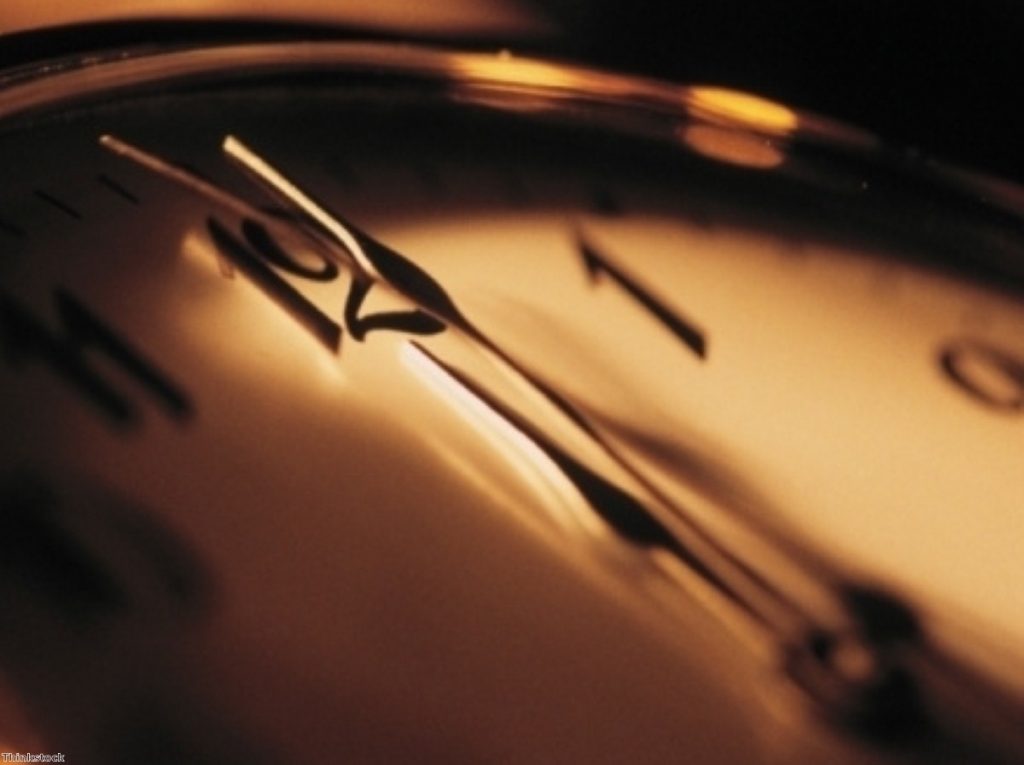Race against time: Campaigners fight clocks going back
An MP’s proposed bill to stop the clocks going back is gathering “enormous” cross-party support, Rebecca Harris has claimed.
The Conservative MP for Castle Point is hoping to make British Summer Time permanent in a bid to shift an hour of daylight from the morning to the evening.
Her private member’s bill would trigger a government review of the case for the change, therefore still giving ministers the option to rule out the move.


But it also gives them power to implement a trial which could see Britain abandon Greenwich Mean Time (GMT) altogether for three years.
“It’s an idea that has enormous potential to benefit wellbeing and quality of life right across the country,” Ms Harris told politics.co.uk.
“I’m not counting my chickens. The government will take a view nearer the second reading, but I have an enormous amount of cross-party support now. And a huge array of organisations who are signing up to back this and push it.”
Rebecca Harris outlines the arguments for her bill –
The Lighter Later campaign has won backing from over 50 national bodies by arguing the change would have a wide-reaching impact.
Up to 80,000 new jobs could be created in the tourist industry, as longer evenings would extend the tourist season and allow attractions to stay open for longer in the year.
Road safety experts believe up to 100 deaths could be prevented every year, while sporting organisations like the Football Association and the Lawn Tennis Association believe it would increase participation and therefore cut obesity.
“There’s also the potential to cut crime and the fear of crime,” Ms Harris added.
“A lot of opportunist crime, street crime and break-ins, happen just after dusk when people have not yet come home from work or school.”
Campaigners also believe the bill could help the environment by saving up to 500,000 tonnes of CO2 emissions every year.
The Commons’ energy and climate change committee heard evidence this morning from experts on the effect of energy usage on extending British summertime.
Elizabeth Garnsey of the University of Cambridge told MPs research backed claims about reductions in car accidents, increased sports participation and emissions reductions.
One MP asked her whether any studies had investigated the potential for increased absenteeism because “nobody likes getting up in the dark”.
“The analysis of behavioural responses has not been systematic but one factor that has been brought out is depression rates seem to increase when the clocks go back and that seasonal affected disorder symptoms spike,” she said.
“Those people prone to to depression and seasonal affected disorder are more adversely affected by early onset of darker evenings than mornings.”
This is not the first time ending the habit of putting the clocks back an hour in the winter has been raised in a private member’s bill, however.
Four years ago Conservative MP Tim Yeo’s energy saving (daylight) bill advanced no further than its second reading stage in the Commons, despite only proposing the shift “for an experimental period”.
Opposition among postal workers and farmers, the two groups who had previously benefited most, now appears to be wavering.
The Communication Workers’ Union, which represents postal workers, said it had dropped its opposition to daylight saving after early morning deliveries were dropped.
Terry Jones, acting director of communications at the National Farmers’ Union of England and Wales, said a narrow majority of farmers were in favour of lighter evenings last time members’ opinion was tested on the issue.
“Whether an extra hour’s daylight would be more beneficial in the morning or the evening depends very much on the work pattern on each individual farm,” he explained.
“If a firm proposal was made to put the clocks forward – in order to reduce road accidents, for example, or reduce energy consumption – we would need to consult our members – but at this stage we are keeping an open mind.”
The clocks go back on Sunday morning.

